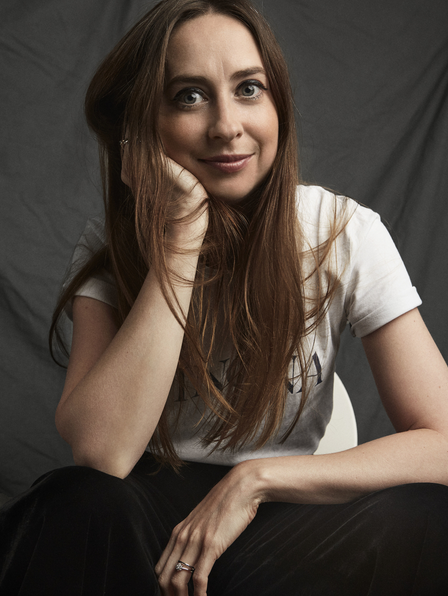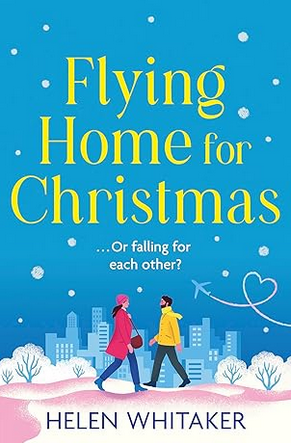Chatting with Authors
Case Study: HELEN WHITAKER
Three Hard Truths for Writers
1. “Nobody is holding their breath waiting for your project,” Helen says. “It’s all up to you to set those deadlines. It’s a personal achievement and all about self-discipline. That’s why it’s all the worse when you miss your own deadlines.”
2. Keep moving forward. “If you get stuck on one thing, go to the next. You don’t need to fix it then and there. I see this from the writers I work with at the magazine too. They keep reworking one small part of the draft over and over. Just move on. You can fix it later.”
3. “Finish. You must finish. Then you can go back and change it.”
There is something a bit intimidating about someone who is worked for a top beauty magazine, who is the editor of a well-known in-flight magazine, who has published four books (and counting) and is also raising a family. Yet Helen Whitaker keeps all the balls in the air. She also keeps it real. On our Zoom call, her laundry is hung behind her to dry in the afternoon English sunlight. Published authors. They are just like us!
Her winding road to authordom is familiar, beginning with a life-long love of writing and magazines. After working for various British magazines and sleeping on friends’ floors during internships, she secured a position at Glamour, her favorite magazine at the time, as entertainment editor and director. “That was the moment I felt I had made it,” Helen says. After several years there, she landed in her present position as editor of High Life, a prestigious in-flight publication for British Airways.
Although these jobs may be many a writer’s dream, there is another dream many writers have and that is to write a book, or four in Helen’s case. Before her first book was published, she had already written two unpublished books. But it was The School Run that made her a published author in 2019.
THE PATH TO PUBLISHING
“The School Run was an in-house project for Trapeze, the publishing firm. They wanted me to write about middle class mums and getting their children into the right state school,” she says. “I had a one book deal with them, and they had first right of refusal on the second.” Which they took when she gave them a second book, a marriage dramedy called “I Give it a Year.”
But her third novel, “Single in the Snow” didn’t sell right away. It was based on her days in Whistler after college and started out as a female friendship story. “When it didn’t sell my agent suggested I turn it into a rom-com with a man and woman,” Helen says. That did the trick and the book was published in 2022 by Hoddard and Stoughton who also published her latest and fourth book, Flying Home for Christmas, another charming rom-com.
Although her agent’s suggestion was key to turning the tide on Single in the Snow, it was unusual for her to give feedback like that. “My agent knows what the market wants, how to submit and what the competition is doing,” Helen says. “But she also is involved in the idea and writing process. I often submit drafts to her before I send them to the editors. Her notes are always valid.”
THE CREATIVE PROCESS
To attract a publisher, a book proposal starts with the “top line,” or hook. In the case of Flying Home for Christmas that would be: two attractive strangers are stranded at Heathrow on Christmas Eve and there is only one hotel room left in the city that they must share.
However, for the writer, the creative process might begin at the ending, especially in the rom-com genre in which the ending is often a foregone conclusion. “I write a chapter or two to see what’s going on,” Helen says, “and then follow that with a 10-page synopsis of what will happen and where.”
A typical book takes her six months to write a decent first draft. “My feeling is always to make it as good as I can. You must finish.” Then she goes back to the beginning and edits. “Being a journalist has made me aware that a lot happens during the editing stage,” she says.
A typical book length is 75,000 words. “That’s terrifying to think about when it has to be delivered by a certain date,” she says. “So I set small milestones sch as 500 words a day.”
While all authors differ, the doubts set in for her at 13,000 words. “The first third of a book is the most enjoyable and then I find myself in the sticky middle. I begin to doubt if the strands going from the main story are right. Are they fun? Romantic? I’ve learned that this is something I do, so I just keep writing, writing, writing.”
The ultimate truth about writing anything is that you can’t finish unless you begin. Helen had two unpublished books that paved the way for her first published novel. Her work ethic is inspiring – after she drops her son off at school she gets almost an hour of writing in before going to work. She works more on her lunch break and when she can, sometimes using the “notes” feature on her phone when thoughts occur. And now that she also takes Friday as a writing day, it wouldn’t be a surprise if she already has 10,000 Words for her next novel on “paper” already.
THINKING OF WRITING A BOOK?
If you have an inkling you want to write a memoir, or two, I have a FREE mini course (in PDF for now) to help you jumpstart the process.
5 EXERCISES TO HELP YOU JUMPSTART YOUR MEMOIR WRITING (a free mini course)


